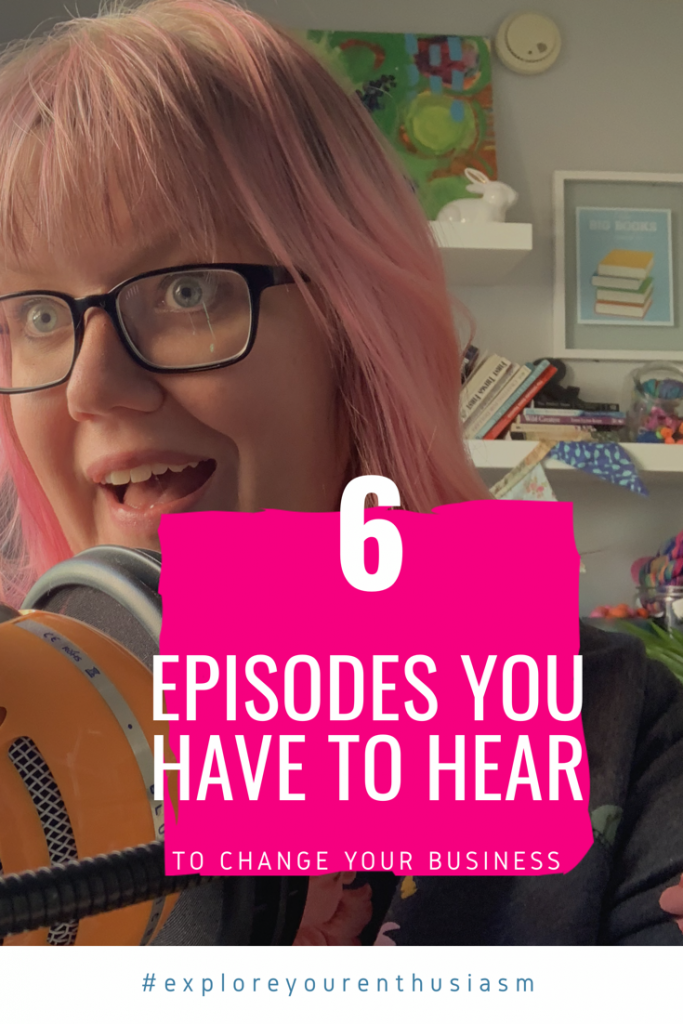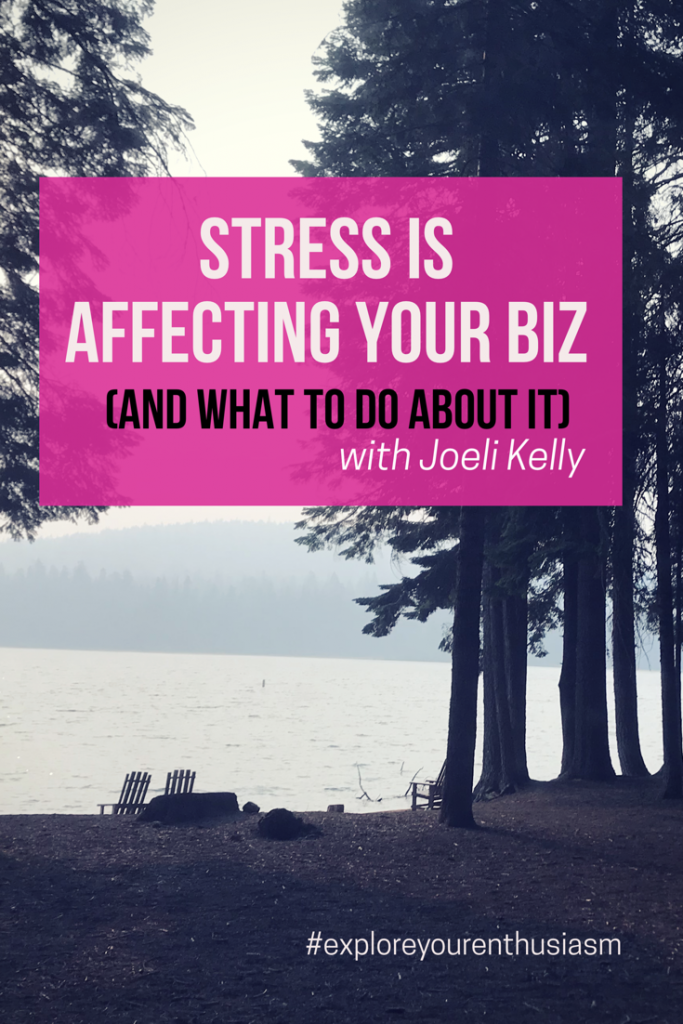Podcast: Play in new window | Download
Do you find yourself distracted with how you could have done something better? Or sidetracked thinking about the mistakes you made? Are you just too hard on yourself? Guess what? Me too!
Today I’m going to share how I’ve been working on: NOT being so hard on myself so I can move forward!
Now, most of us want to be better, right? We want to streamline, optimize, and improve all the time. That’s great and useful…but not when it comes with a dose of beating yourself over everything that needs to be improved and optimized. Not if you’re getting so bogged down in what’s “wrong” that you can’t shift into action.
This is on my mind because a few days ago I posted on Instagram Stories, that I noticed that I am really hard on myself when it comes to basically every parenting interaction. I'm always thinking: Oh, I could have done that better…I should have reacted differently…Ugh, I wish I had stayed calmer.
(What sparked this conversation was how I feel about parenting decisions, but we’re going to talk about all aspects of life, and especially your business, so you don’t need to be a parent to learn something! I’m brand new at being a parent, and I think a lot of what I’m experiencing is how it feels to be brand-new and learning at ANYTHING. It certainly reflects the lessons I was learning as a brand-new businesswoman!)
When I posted on Instagram Stories I got a lot of replies to my question about being hard on myself and I want to talk about them with the whole community, because they represent two different ways to look at the issue.
First, let’s talk about what I mean about “being hard on myself”. What I’m talking about is when something happens or you make a choice and you think: I should have handled that better. I shouldn’t have done X. I should have done Y.
Now, that thought alone isn’t necessarily the problem. The problems come in when there is judgement (I’m bad because I did X), when there is intensity (OMG THAT WAS HORRIBLE) and when these thoughts are frequent (if you can’t move forward because you can’t let go of the “mistakes” you made).
For example, one of the parenting things I thought was a mistake, I could NOT let it go. For the whole day I go over and over the morning in my head: What happened? Why didn't I …? Why didn't I..? I should have…
(By the way, I want to mention that if you have intrusive or looping thoughts, talk to a therapist, you can get help.)
So that’s being hard on yourself, and for me it comes in the framework of my Generalized Anxiety Disorder, where my anxiety-brain runs away with itself.
When I posted about it I got two different kinds of replies:
- Half the replies said: This is what motherhood is! Get used to always feeling not good enough!
- And the other half of the replies said: here are some resources for negative self-talk. Whether it's challenging negative thoughts or learning to talk kinder to yourself.
And both of these are interesting because they show different perspectives. One says “this is how it always is” and the other says “you can change this”.
I know that part of what “get used to it” means is, I'm not alone. That this is a part of doing anything new, and it's a part of almost every aspect of a woman's life – this constant sense that you SHOULD be better, that you COULD do better and that it's your job to be the absolute best.
Our world is filled with messages telling us: eat better, manage your time better, improve your hair, eyes, waist, kids behavior. Earn more money. Buy better stuff. Tidy up the stuff you do buy.
I don't think any of us should just accept that we never feel good enough. I think we can accept that there are a lot of messages in the media and on Instagram, Pinterest, and even among friends that tell us NOT to feel good enough. Our world is filled with this message and then we reiterate these messages to ourselves…but I don't want to believe that it has to be like this forever, that I just need to resign myself to this mindset.
Although I know “you’re not alone, this is what it feels like” messages are meant to be encouraging, I just don't want to live like this. It's not sustainable (in this intensity.) Just because the world tells you that you need to be better doesn’t mean you need to tell YOURSELF that you need to be better.
So, I'm moving forward with the belief that it doesn't have to be like this.
Now the second set of responses were: challenge those negative thoughts!
And this was interesting because I was not even recognizing what I'm doing as negative thoughts. It feels more like…hmm, just a running commentary of what could be better. Almost positive like: you could improve it this way! This could be smoother next time! Optimize! Streamline! IMPROVE!
HOWEVER improving and optimizing CAN be helpful…but when the underlying message is “Not good enough! Not good enough!” …that's not helpful or beneficial.
I kept telling myself that these weren't negative thoughts, they were just kind of insistent. Like the messaging of my whole life combined with anxiety leads to insistent, pervasive sense of doom. And then I realized: Wait, if this is anxiety, I know what can help with anxiety: challenging those thoughts and rewriting them. This is known as Cognitive Behavioral Therapy and studies show that it’s one of the most effective therapies at dealing anxiety and depression.
CBT has this concept of “cognitive distortions,” ways that you’re seeing the situation through a distortion. You recognize the distortion, then rewrite the thought without the distortion.
So I checked to see if this “you should be better at X” fits in with any of the cognitive traps. I used my Moodnotes app because it makes it super simple.
Here are the cognitive distortions that applied:
- Negative filtering: Only seeing the bad
- Downplaying positive: dismissing positive qualities by telling yourself they are unimportant or do not count
- All or nothing thinking: it either went wonderfully or was a failure. You either have a relaxed and happy kid or you're failing at it all.
- Blaming: Blaming myself for anything that happens, even stuff I can't control.
Do you see how these distortions can apply to your own “hard on yourself” thoughts?
Now, I shared all this in an Instagram Live (follow me so you don’t miss any! I’m @TaraSwiger) and my friend Joeli pointed out something big I had been missing. The thought that needs rewriting isn’t just “you should be better/you’re not enough” but the belief that I even made a mistake to begin with.
I’m assuming (wrongly) that any unwanted outcome (with my child or my business) is because of some mistake I made. The other way to look at this is that it's not a mistake. You can't control all outcomes through your actions alone. For example, maybe if you would have done more IG post about your new product, you would have sold 1 more. But maybe you wouldn't have. You can't assume you know the outcome and then beat yourself up over what you don't know.
The thought the rewrite with CBT: It was a mistake that I X.
The cognitive distortions: Fortune-telling, where you believe you know what would have happened.
A rewritten thought: I don't know that it was a mistake that I X. I can try something different next time.
Another thing that came up while talking about this with friends is…depression. Depression lies. It tells you: You suck. This will never be better. It is your fault it's not going better and there's nothing to be done/you can't fix it. Because you suck.
This is a cognitive distortion. And if you have clinical depression, just rewriting your thoughts might not be enough. You may need an intervention from a specialist. I'm telling you this not because you suck, but so you know: YOU CAN GET HELP FOR THIS. Start by going to your primary care physician, your family doctor, and explain what's going on. They can recommend a therapist or an intervention. If you have a therapist, tell them about this.
More than anything, I want you to know that you are not alone and it won't always be like this. If it's hard and you think it's because you suck, you don't have to just accept that truth. If you feel inundated with messages that tell you you're not enough, you're not alone. You can unsubscribe from or turn off some of those messages. You can start to notice when those messages come at you and challenge them right then. (Studies have found that one of the best ways to shift the negative effect of advertising on girls it to talk about what the advertisement is selling right when you see it. I bet this works on yourself as well. “Oh this ad is telling me that the whites of my eyes need to be whiter? It's coming up with another thing I need to fix about myself. Hmm, maybe the whites of my eyes are not as important as the love I show in my life?”).
If you are hard on yourself, you're not alone. Take a breath. Rewrite the thought.
I think you are doing an AMAZING job in your life. You are enough. I hope you continue your day knowing that you are enough and you get to be enthusiastic about your life and your business.
How to listen
- You can subscribe to it on iTunes (If you do, leave a review!)
- You can listen to it using the player above or download it.
- Subscribe or listen via Stitcher (or subscribe in whatever you use for podcasts – just search “Explore Your Enthusiasm” and it should pop up!).









